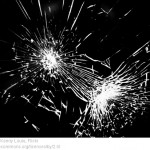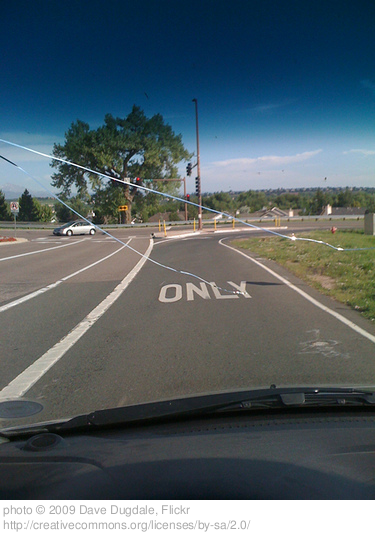Over the past week it has been interesting to see the kind of reactions folks have to discussing “spiritual warfare.” There are three broad responses besides the “right ons!” and the “way to be academic and true to the spiritual realm!” type.
1) Abused post-Pentecostals who hear spiritual warfare and think “demon-under-every-bush.”
I want to assure you that if this is your situation, that I have never been part of a Pentecostal church. I have been Mennonite Brethren most my life with a short time as a Baptist. I am not of this ilk and am deeply saddened by situations like yours…
2) Skeptical of the supernatural realm and its active reality.
I also had a time when I was skeptical, but God since has experientially shown me in my own life that “if it happened in the New Testament, it can happen today.” My charismatic experiences with the Holy Spirit and spiritual warfare, along with my exegetical studies of the Bible have convinced me of this.
3) Spiritual Warfare is only about personal situations and has nothing to do with institutions or systems of injustice.
In the following, I hope to demonstrate from a theological perspective that there is more to it than this…
There has been much discussion about what/ who the powers are and how they interact in the natural world. Widespread confusion has been stemmed from the various interpretations of powers language. This is because the texts about the powers, including this Ephesians 6, are ambiguous. Lets attempt to discern an approach to the powers that is both practical and biblical.
The primary mode of understanding the language of the powers in modern evangelicalism has been to see them as been personal demonic tempters of the individual Christian. How this actually is understood to affect daily life varies. Many Christians have, by all practical means, dismissed the powers as being separate from most human affairs, with the exception of major acts of evil. Others often portray themselves as being demon hunters behaving as if there is a “demon-under-every-bush.”[1] Whatever the case may be, the powers are often limited to the influence that they have on individuals; which I want to continue to affirm as part of but not the whole picture.
Another understanding of the language of powers would be the definition that has been put forth in the work of Walter Wink. In his book, The Powers That Be, he describes the language of powers in the following fashion:
We might think of “demons” as the actual spirituality of systems and structures that have betrayed their divine vocations. When an entire network of Powers becomes integrated around idolatrous values, we get what can be called the Domination System. Do these entities possess actual metaphysical being, or are they the “corporate personality” or ethos of an institution or epoch, having no independent existence apart from their incarnation in a system?… My main objection to personalizing demons is that by doing so, we give them a “body” or form separate from the physical and historical institutions through which we experience them. I prefer, therefore, to regard them as the impersonal spiritual realities at the center of intuitional life.[2]
In the above statement, Wink determined that the powers are to be understood as the “ethos” at the center of systems of institutions. The powers are therefore depersonalized and acknowledged as a cosmic force that is impersonal. The character of the demonic has more to do with the determination to manipulate the minds and actions of humans within a system, rather than having a personal transcendent nature.[3] In one sense, it could be argued that Wink demythologizes the powers by “concluding that they have no separate spiritual existence outside the structures of society.”[4] This theory about the powers seems to have some validity when it comes to the influence of institutions, but it fails to bring a strong view of Scripture, especially in regards to the personal nature of demons that is attested to in the New Testament. N.T. Wright appreciates the work of Wink but believes something is missing:
“…there is at least a grain of truth in the theory, made famous by Walter Wink, that the inner or hidden forces latent within organizations, companies, societies, legislative bodies and even churches are the sum total of the spiritual energies which humans have put into them, abdicating their own responsibility and allowing the organization, whatever it is, to have it instead. I believe there is more to it than that, but not less.” [5]
Many have had difficulty with the view of Wink, yet at the same time, most scholars (like Wright) are grateful for his academic contribution to the subject. Those who hold to a more personal understanding of the demonic will accuse Wink of allowing Western thought to influence and secularize such interpretations. That which is unable to be analyzed by the human senses is dismissed as illusion and myth.[6] Kraft, who is part of the so-called “Third Wave” or “signs and wonders” movement, accuses many evangelicals of not taking the bible seriously enough in this area. He contends that Enlightenment rationalism has clouded the thinking of many Christians.[7]
So, I have demonstrated that there are two basic polarities of thought in regards to how one is to understand the powers. On one end of the spectrum is the view that emphasizes spiritual warfare against the powers of the age. The other end of the spectrum acknowledges that fallen powers operate within systems, structures, or institutions in order to oppress and marginalize others. The interesting thing about these two poles is that most Christians would likely land somewhere in-between.[8] Is this an idealized belief or is it legitimately possible to hold these two views in tension?
Holding two views in tension is often a difficult task for the modern person. Oftentimes, the desire to ‘figure it all out’ is frustrated by ambiguity. In the New Testament, the issue of defining and combating the powers seems to need to include both of the views that have been presented above. Yoder Neufeld supports this “both/ and” approach stating:
Any restrictive definition of the powers undervalues and thereby defeats the central argument in Ephesians, that God’s design is to gather up all things. A full appreciation and a faithful translation for our day of what the author of Ephesians has in mind requires that we not force and exclusive choice between and exorcistic and a prophetic view of evil and the church’s response to it.[9]
Basically, Yoder Neufeld seems to argue that the text of Ephesians does not try to resolve these issues and so perhaps it is good to embrace some understanding that would not exclude. The language of the powers should therefore be seen as dealing with the cosmic forces “great and small, personal and impersonal, individual and systemic, that resists the saving activity of God among humanity.”[10] In other words, the church ought to resist the powers who have a hold on individuals, and seek God’s power for their personal liberation. Along with that, the church must also recognize that these same demonic powers can manipulate the institutions and structures of society, creating systems of systemic injustice. God is a liberator of both and is calling the church to put on the full armor of God to resist the powers of evil.[11]
[1]Kraft, Charles H., Confronting Powerless Christianity: Evangelicals and the Missing Dimension (Grand Rapids, Michigan: Chosen: Baker Book House Company, 2002), 53-54.
[2]Walter Wink, The Powers That Be: Theology for a New Millennium (New York: Galilee Doubleday: Random House Inc., 1998), 27-28 [emphasis added].
[3]Yoder Neufeld, Thomas R., Ephesians, 356-357.
[4]Gailyn Van Rheenen, “Cultural Conceptions of Power in Biblical Perspective,” Missiology: An International Review, ATLA Serials, XXI, no. 1 (Accessed: April 2008, January 1993): 42.
[5]N.T. (Tom) Wright, Evil and the Justice of God (Downers Grove, Illinois: InterVarsity Press, 2006), 112.
[6]Gailyn Van Rheenen, “Cultural Conceptions of Power in Biblical Perspective,” Missiology: An International Review, ATLA Serials, XXI, no. 1 (Accessed: April 2008, January 1993): 42.
[7]Kraft, Charles H., Confronting Powerless Christianity: Evangelicals and the Missing Dimension, 48.
[8]Ibid., 355.
[9]Yoder Neufeld, Thomas R., Ephesians, 358.
[10]Ibid., 296.
[11]Van Rheenen, Cultural Conceptions of Power in Biblical Perspective,” 50.












